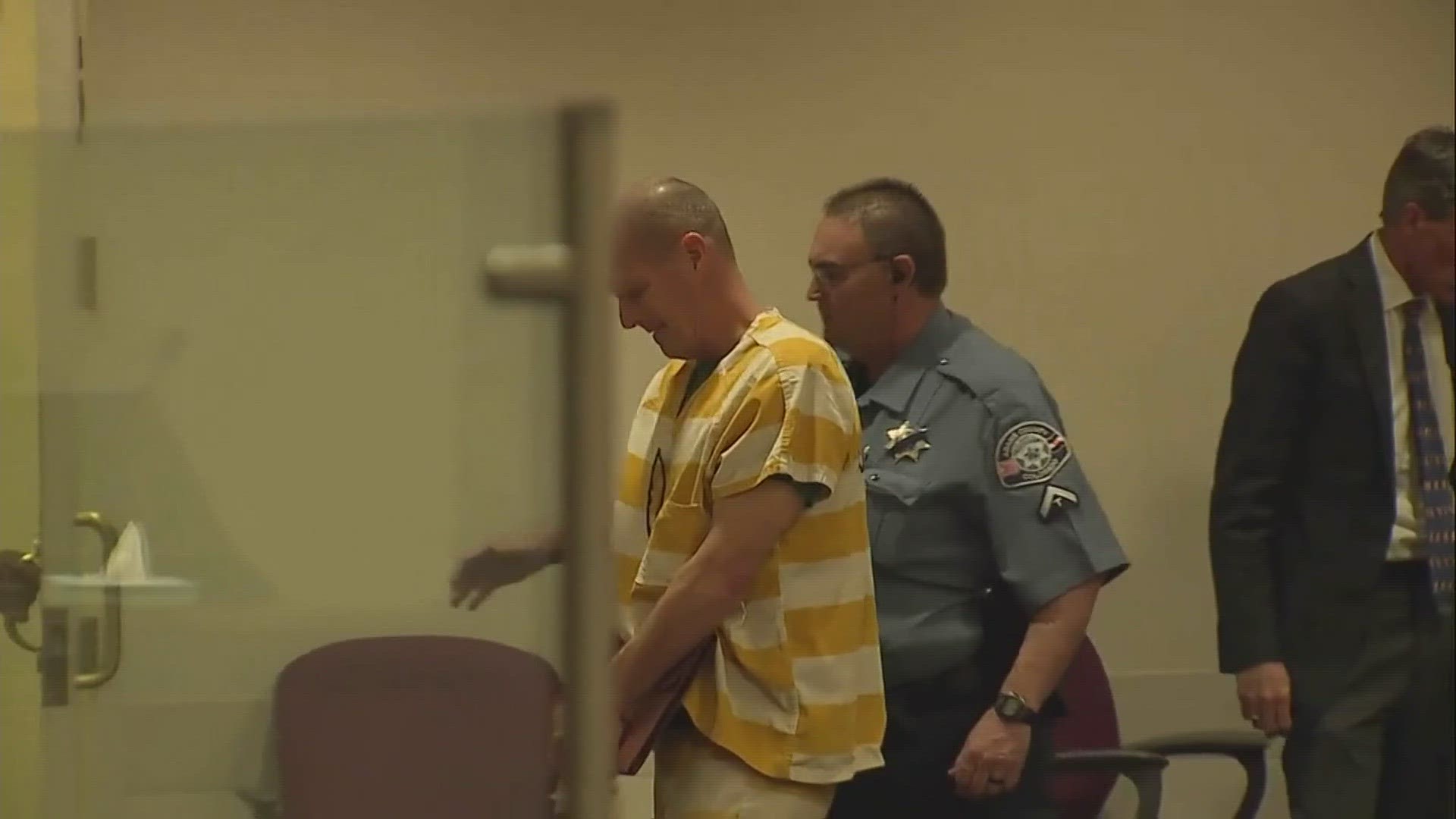AURORA, Colo. — A paramedic convicted of the most serious charge in the death of Elijah McClain will spend at least three years and nine months behind bars – unless he prevails on a long-shot motion to shorten his sentence.
Peter Cichuniec, convicted of second-degree assault and criminally negligent manslaughter in McClain’s 2019 death, has 126 days – 18 weeks – to file what’s known as a “motion for reconsideration.”
Essentially, it would ask Adams County District Judge Mark Warner to reconsider the sentence by arguing that the case is “exceptional” and has “unusual and extenuating circumstances.”
“The very fact that there was a paramedic convicted of not providing adequate medical care makes this an exceptional case,” 9NEWS legal analyst Scott Robinson said. “It makes it an unusual case.”
Robinson said he had not heard of another similar case in Colorado.
A message left for one of Cichuniec’s attorneys was not immediately returned.
The Aug. 24, 2019, confrontation began after a 911 caller reported seeing a man with a mask who seemed “sketchy.”
Aurora police officers Nathan Woodyard, Randy Roedema and Jason Rosenblatt confronted McClain on an Aurora street, and a physical struggle began. After Roedema said he saw McClain try to grab Rosenblatt’s gun – an assertion prosecutors repeatedly questioned – the officers twice put him in a neck hold with the objective of rendering him unconscious.
McClain vomited and inhaled some of it, then suffered a series of medical problems, including low levels of oxygen and high levels of acid in his body.
McClain said repeatedly “I can’t breathe,” before Cichuniec approved a dose of the sedative ketamine that was administered by another paramedic, Jeremy Cooper.
McClain’s heart stopped a short time later – and although paramedics revived him, he never regained consciousness and died three days later.
Multiple medical experts blamed McClain’s death on the ketamine.
Cichuniec was the highest-ranking paramedic on scene – and of the three first responders convicted in McClain’s death. He faced the longest possible sentence because second-degree assault is a crime of violence.
That means he must serve 45 months of the five-year sentence before he is eligible for parole.
While Cichuniec can appeal his conviction – and likely will – that process could take years to work its way through the courts.
As a result, his best hope to have that sentence reduced is to ask the judge to reconsider it.
Such a request, Robinson said, is “essentially automatic.”
To ask for reconsideration on a crime of violence, Cichuniec would have to argue that the case is “exceptional” and has “unusual and extenuating circumstances.”
The nature of the case satisfies two of those considerations, Robinson said.
“The question is, are there extenuating circumstances?” Robinson said. “On any kind of reconsideration, that judge is supposed to look at everything – past criminal history or the lack of criminal history, the circumstances of the offense, the victim’s attitude about reconsideration, community support.
“Everything goes into the reconsideration analysis that a judge engages in after any sentence to prison.”
One factor could be the training Cichuniec had in the now-discredited medical condition of “excited delirium.” It played a role in the decision to use ketamine.
Cichuniec has no criminal history – and has strong support from family members, friends and colleagues, who attested in letters and in testimony to his character.
The judge has nearly unlimited discretion in how to handle such a motion – assuming Cichuniec’s lawyers file one. He can dismiss the motion without a hearing, or he can call a hearing and take testimony.
If the judge does consider changing the sentence, he must take into consideration the wishes of McClain’s mother, Sheneen.
“The mother of Elijah McClain has every right to be heard,” Robinson said. “Her word is not binding, but the judge has to at least let her say her piece. And that pretty much entails a full-scale hearing.”
SUGGESTED VIDEOS: Elijah McClain death

